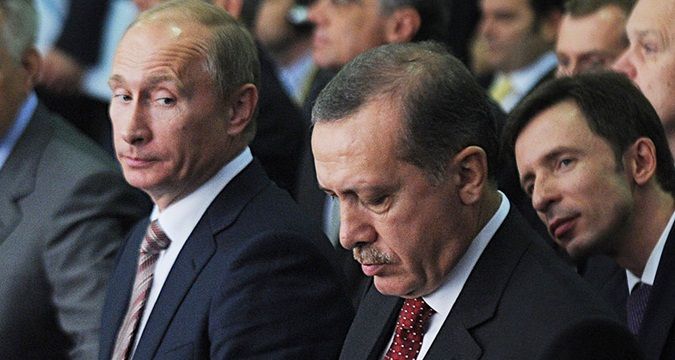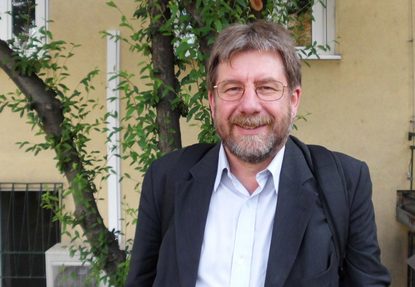With more than 50 thousand political prisoners, Turkey has lost its connection with democracies in the world under Erdogan rule. Since the Gezi Protests of 2013 and the corruption probes against him and his close circle in the last days of the same year, Erdogan has committed himself to further repressing the opposition at home and getting involved in shady operations abroad. The most prominent examples of the former are the imprisonments of Osman Kavala, Selahattin Demirtas and Ahmet Altan. Kavala is a well-known philanthropist and civil activist whom Erdogan accusing of organizing Gezi Protests and involving the coup plot of 2016. Both local and international, all those who observed Kavala’s trials agree that the indictments against him are Kafkaesque. They do not contain a single shred of reasonable evidence. Demirtas was the leader of the Kurdish HDP (Peoples’ Democracy Party) which prevented Erdogan to reach the majority in the Parliament in the 2015 elections. He also was one of the first public figures who questioned Erdogan’s narrative about the controversial coup attempt. The increasing popularity of the charismatic Kurdish lawyer has worried Erdogan for which he ended up in jail for bogus charges. Ahmet Altan is a worldly known novelist. With a brilliant intelligence and courageous commitment to the truth, he has always been a voice of the oppressed in Turkey. Especially, Erdogan’s relentless persecution of Kurds and brutal crackdown on the freedom of expression have always been criticized by Altan’s powerful words. Those three brave men have spent the last 4 years of their lives in jail just because they represent the consciousness in Turkey.
What adds insult to injury is the insufficient response from the European democracies to Erdogan’s relentless oppression. Europe and its institutions have functioned as a compass for Turkey’s progressives for decades. However, Erdogan manages to play with European leaders most of whom have less political experience and wit than himself. Despite the reports of international institutions like the EU, UN and CoE that documented the decline of democracy and freedom in the country, the EU leaders have literally done nothing so far to prevent Erdogan from the brutal crackdown at home. Seeing no response for his authoritarianism against his local opponents must have boldened him to get further strength abroad. He sent Turkish troops to Libya and Syria which received many criticisms from Turkish and foreign experts. He also gets involved with conflict with Greece and Armenia. Most recently, France’s Macron is the target of his wrath. Over the comments of Macron on radical attacks and Islam, Erdogan stepped forward as “the leader of the Ummah” and urged the French leader to receive mental treatment. Some critics argue that he is aiming to consolidate his constituency by making his own fight the nations’ to stop the obvious decline of his votes in polls on a great scale as the country suffers one of the heaviest economical crises in its history. Regardless of his motive, leaders and institutions of the European Union keep playing the appeasement game with Erdogan. Even the ECtHR, Europe’s top court, is powerless against Erdogan. The Strasbourg court ordered the release of Kavala and Demirtas but government-controlled courts of Turkey have invented new reasons to keep them behind bars. That resistance against the ECtHR is also a result of the Court’s reluctance to provide justice for Turkey’s persecuted opponents. More than 130 thousand public employees who have been sacked by governmental decrees for unfounded terror accusations have been disappointed by the ECtHR’s absurd rejection of their appeals claiming that there is still an independent judiciary in Turkey to which they resort to pursue their rights. Among those purged people, there are thousands of academics, judges, teachers, diplomats and doctors. On top of their years-long ordeal, ECtHR’s president visited Turkey and participated in meetings with high-level government officials including President Erdogan and accepted an honorary PhD from Istanbul University where 200 academics have been sacked for their political opinions. His visit has received huge criticisms as it created an impression that the Strasbourg Court has no problem with what is happening in Turkey.
Erdogan’s oppression often extends beyond the borders of Turkey. His long arm reaches to foreign countries where he seeks influence through local Turks or Muslims. Berivan Aslan’s case is one of the most recent examples. Aslan is a Kurdish-Austrian MP of the Austrian Green Party. A hitman of the Turkish spy agency has told Austrian authorities that he was ordered to kill Aslan in the last August. “The suspect says he got the information from Belgrade. He claims that he first got my name from a prosecutor in Turkey. He explains that the details of the assassination were reported to him in Belgrade this year. He is then told that he must go to Austria and wait for a phone call, and the contact will order the assassination,” Aslan said to the Ahval news portal. “If I had committed this assassination, they would have criminally stigmatized me and would not have protected me’. In other words, he is also concerned about his own safety. He wants police protection from the Austrian state,” she said.
President Erdoğan announced that the MİT will focus more on operations abroad, saying some 10,000 people he called terrorists were allowed to move freely in Germany. More than a hundred people have already been illegally brought by the Turkish intelligence to Turkey from foreign countries and tortured in Turkish detention centres. Families of several victims have applied to the UN and extracted violation decisions. It is now very well known that Erdogan is using the spy agency to pursue his opponents abroad. Abdullah Bozkurt, an exiled journalist running the Nordic Monitor news portal from Sweden where he lives is another opponent of Erdogan who has been recently targeted. He was beaten by a group of thugs near his house in Stockholm. “Within minutes of coming out of my home, one of the three men approached me from behind and unexpectedly knocked me down. As I fell to the asphalt pavement, they started punching me in the face and on the head” Bozkurt said. In 2017, Switzerland has opened an investigation for allegations that the Turkish spy agency planned the kidnap of a Swiss-Turkish citizen. By his own words “If Europe continues this way, no European in any part of the world can walk safely on the streets” Erdogan warned Europe.
Europe’s reactions against these assaults within its border have been weak and without impact. Either the Syrian refugees kept by Turkey beyond the European borders or millions of Turks living in Europe have occasionally been used as leverage by Erdogan against the EU. The leaders of Europe have so far not been able to properly respond to Erdogan’s aggressiveness. It undermines the credibility of the EU and encourages Erdogan to further push his limits. Ineffective political response from the EU also undermines the integrity of the European institutions. For example, CoE’s Committee of Ministers has recently urged Turkey to implement the ECtHR’s decision for Osman Kavala but their call has not been taken seriously by Ankara. In other cases, Turkish courts publicly declared that they are more capable of assessing Turkish cases than ECtHR implying that they will not implement ECtHR decisions if in favor of the opponents.
As a solution to deter Turkish bureaucracy from systematic human rights abuses, the Magnitsky act has recently been brought up by rights defenders and some European politicians. It already seems to work as an effective tool instrumentalized by the US government against rights violators around the world. It is unknown to what extent European countries can utilize it on the local or EU level. Either with Magnitsky or more comprehensive policies, the EU should better work on how to deal with Turkey’s bully leader.



